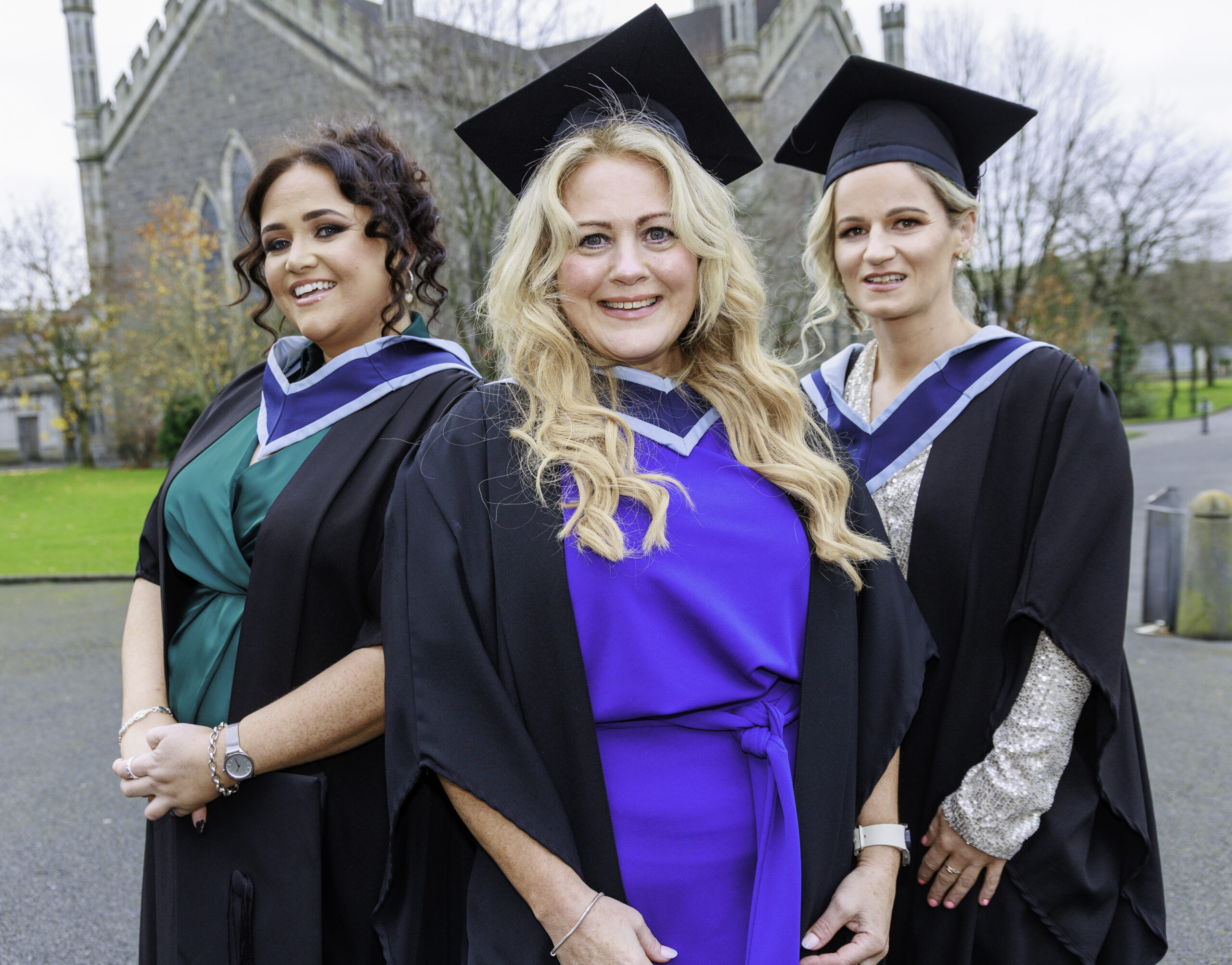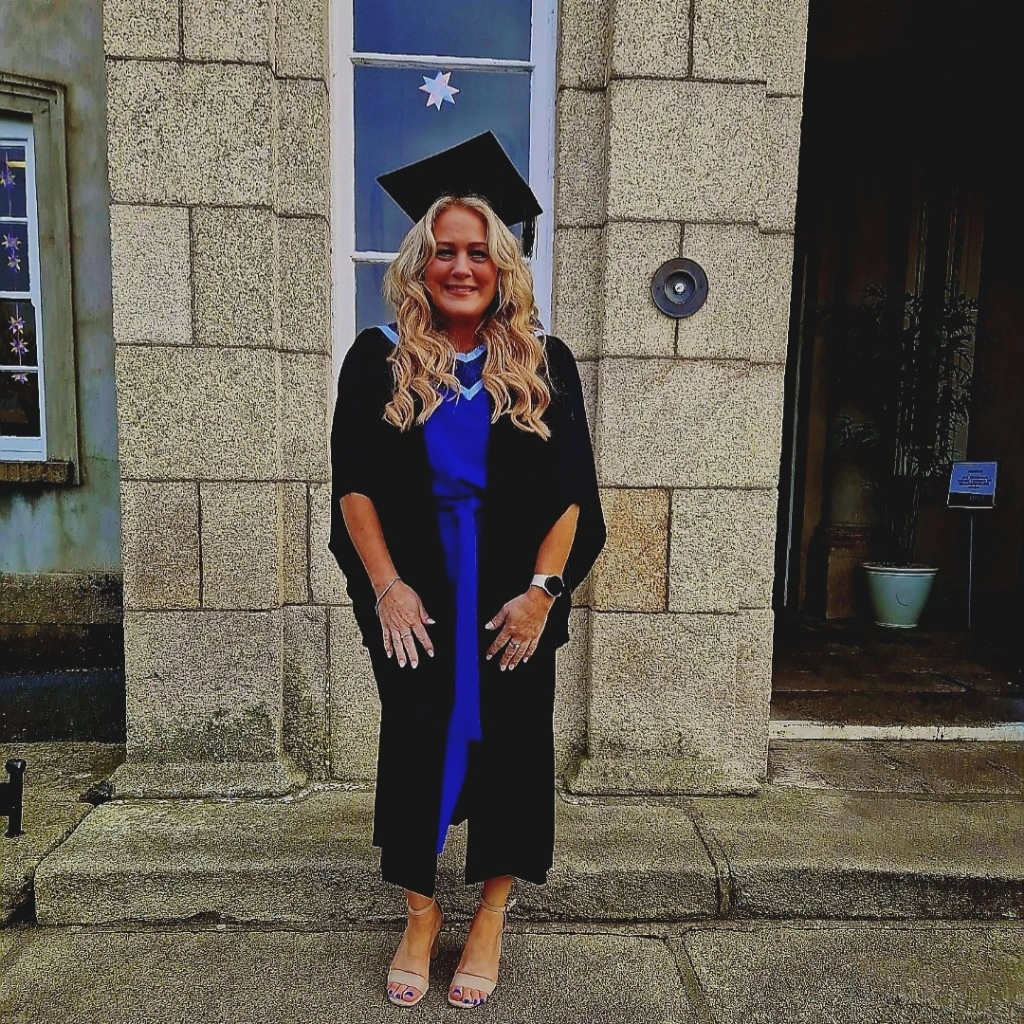Having started her career as a legal secretary, Carlow College graduate, Rhoda Walsh says the turning point of her was her son’s Autism diagnosis. Rhoda graduated with a BA in Applied Social Studies (Professional Social Care) and is now working as an Instructor with the National Learning Network, an unexpected career path that she fell in love with during her practice placement.
The Winding Path to Third Level
When I complete my Leaving Cert, I went onto do a secretarial course, which saw me go on to work as a legal secretary for a few years. When I had my children, I decided to work in social care as a supper worker, as it allowed me a little more flexibility to work around my own family.
A key turning point for me was my son’s Autism diagnosis. As a mother, I wanted to know and understand everything I could to support him, so I decided to get trained in Applied Behavioural Analysis. Having been through the process myself, I have worked with a lot of families voluntarily over the years, to help guide them through the paperwork to get access to recommended services for their newly diagnosed child. I know autism and the system so well and having five children I know the struggles and the fears a mother goes through, especially having a child with Autism.
“My knowledge and experience as a mother I knew I could be a benefit in social care somewhere.”
Rhoda Walsh
This led me onto the path to pursue my Social Care qualification – completing the first year part-time over two years before moving to full-time study.
A new perspective – the Social Care lens
Every module on the Social Care degree is important when your working with the most vulnerable people in society – and I loved every single one. However, one of the critical changes for me was my mindset – I began to look at situations through more of a social care lens. The modules we covered are all relevant when working as a social care worker, like psychology for example, when working with a service user in residential, the psychology modules highlighted the importance, relevance and origins from childhood trauma. Viewing through the social care prism, helps to identify triggers and catalysts that can explain the services users current predicament.
My favourite modules were psychology, sociology and communication. These taught me why people behave the way they do. I fell in love with psychology, in particular the work of Eric Erickson and Karl Rogers, as they are so relevant in social care. All the modules we studied got me using my social care lens. I started to think and look at situations as a Professional Social Care Worker.

Overcoming personal barriers with support
One of the concerns I had about studying at third level was how I would manage with my own dyslexia. During the first few months, I found the assignments a bit overwhelming – adjusting to a new way of learning. However, the support from the College was amazing. Also when I found the work load challenging through my dyslexia, parenthood and work, the counselling service became invaluable. Their positive reinforcements helped me achieve structure and balance for my hectic schedule.
An unexpected career shift
When I commenced my studies, my goal was to always work with Tulsa as a Social Care Worker – that was until I started my practice placement in Year 3. My second practice placement was at National Learning Network and I knew after two weeks that this was where I wanted to work here and become an Instructor.
My degree helped me see beyond challenging behaviours and my experience in Social Care really helped me build a professional relationship with students and help nurture the students to get their awards at their graduation.
Combining Social Care principles in education
In my role as Instructor, I utilise a therapeutic approach while working with my students. I have introduced meditation to my students which they love and we practice self-care. My job is about education, but having a Social Care qualification behind me, allows room for a more therapeutic approach, mindfulness, good active listening and good professional communication – all skills that enrich the experience both for myself and my students.
For more information on the BA in Applied Social Studies (Professional Social Care), tap here

